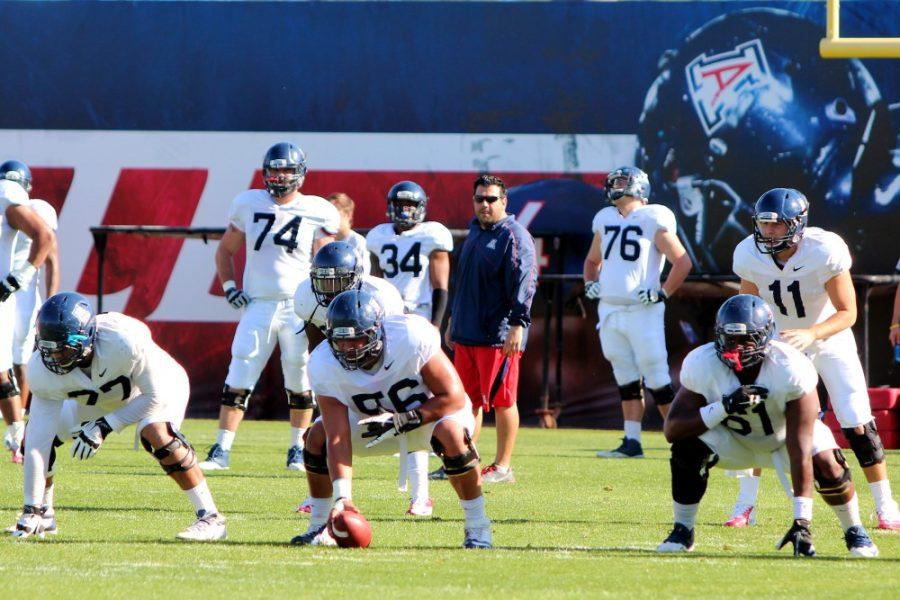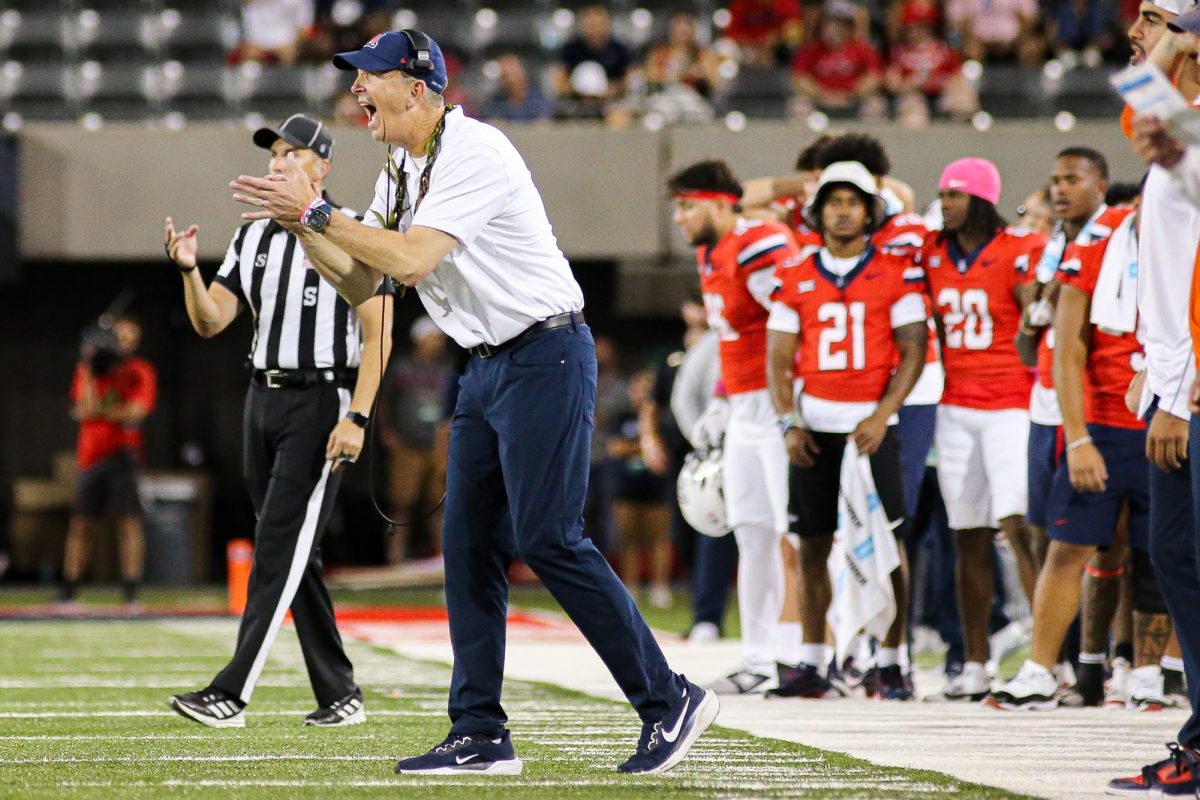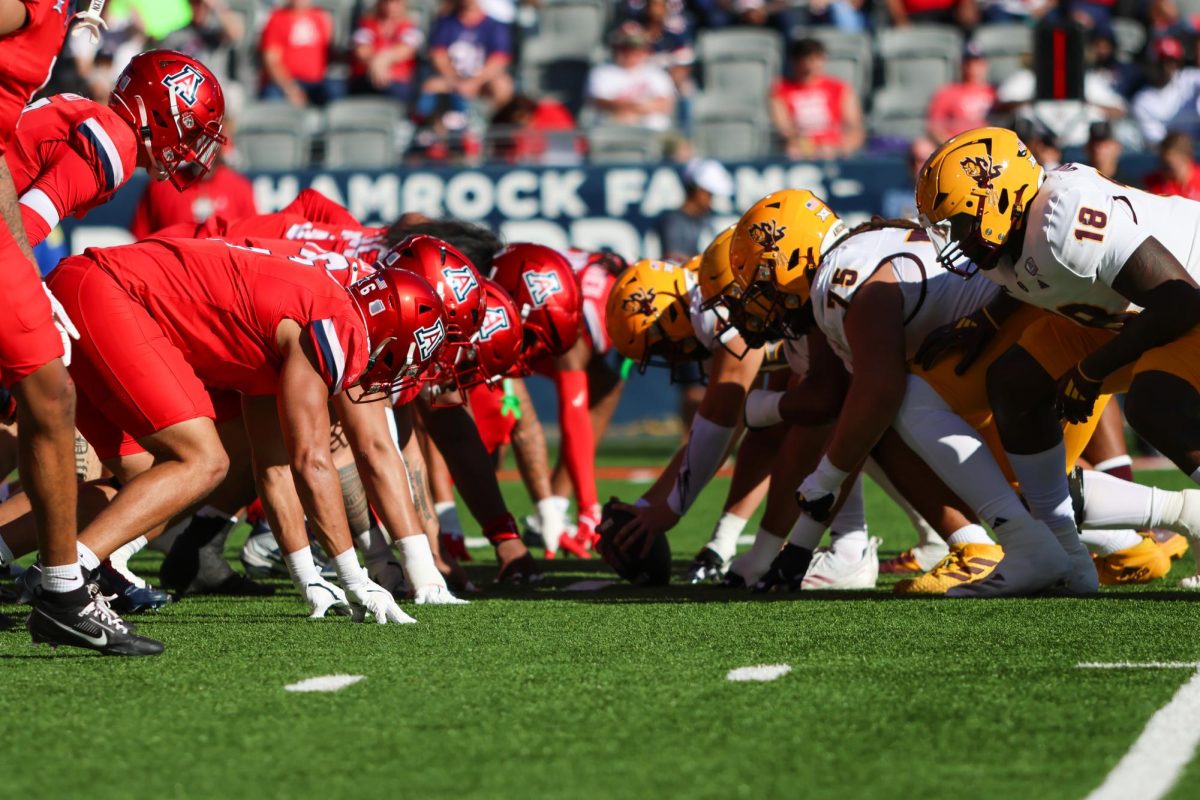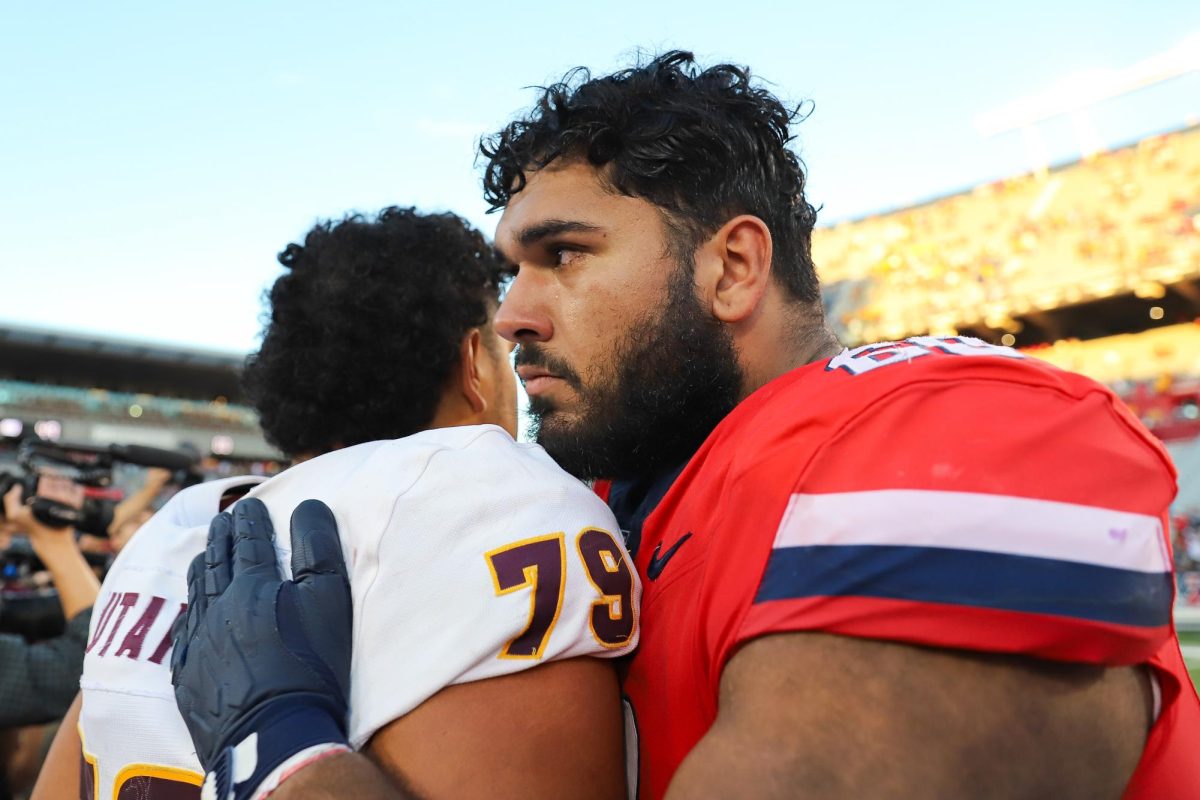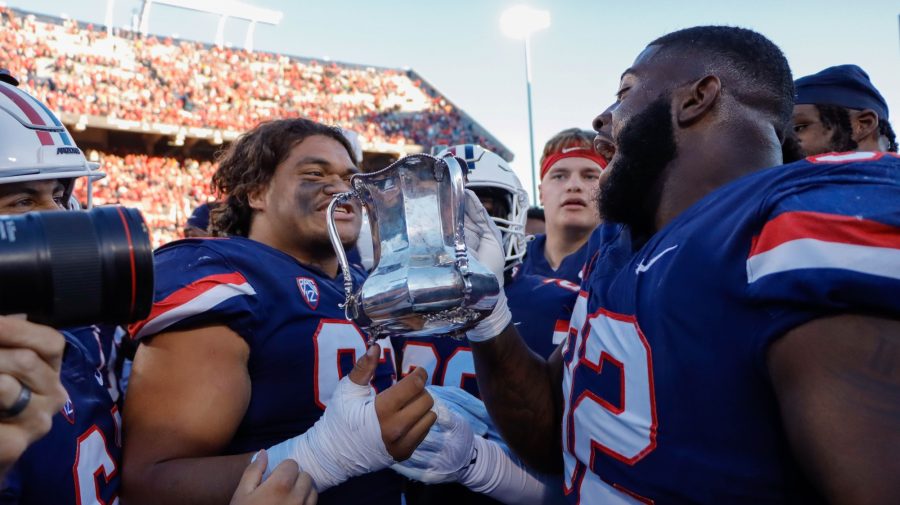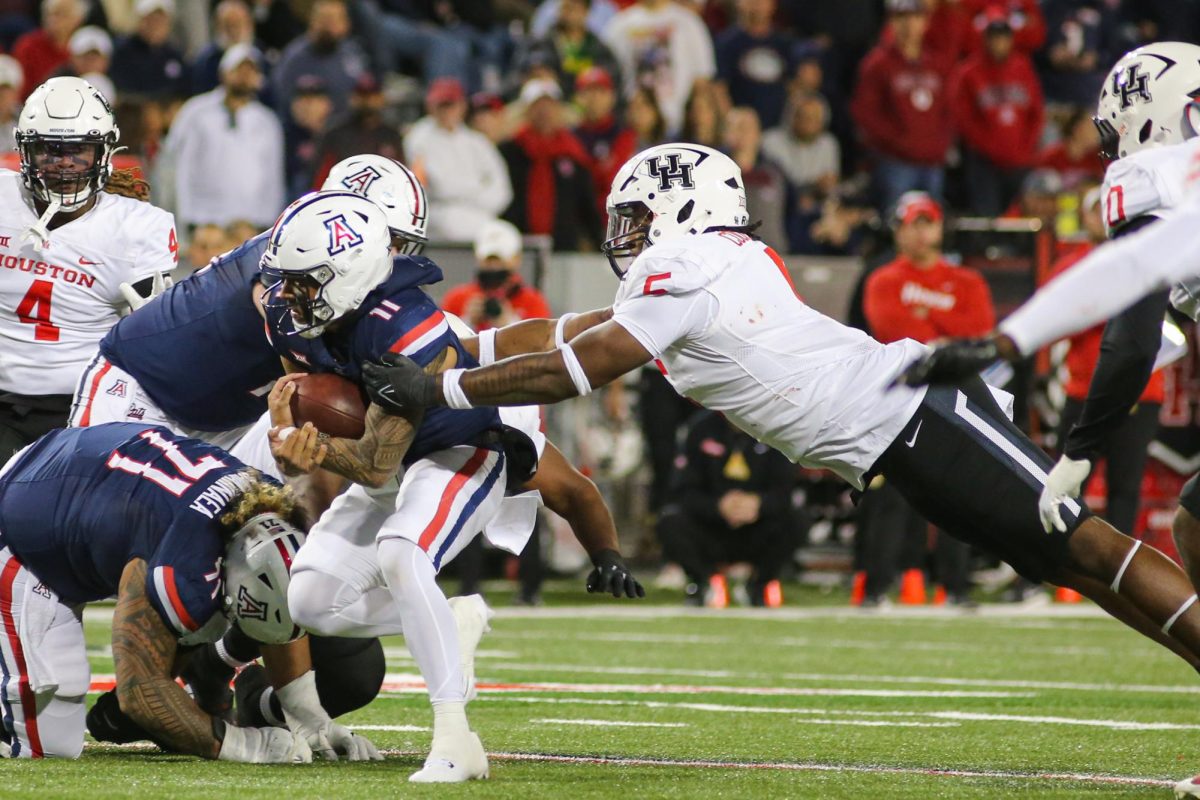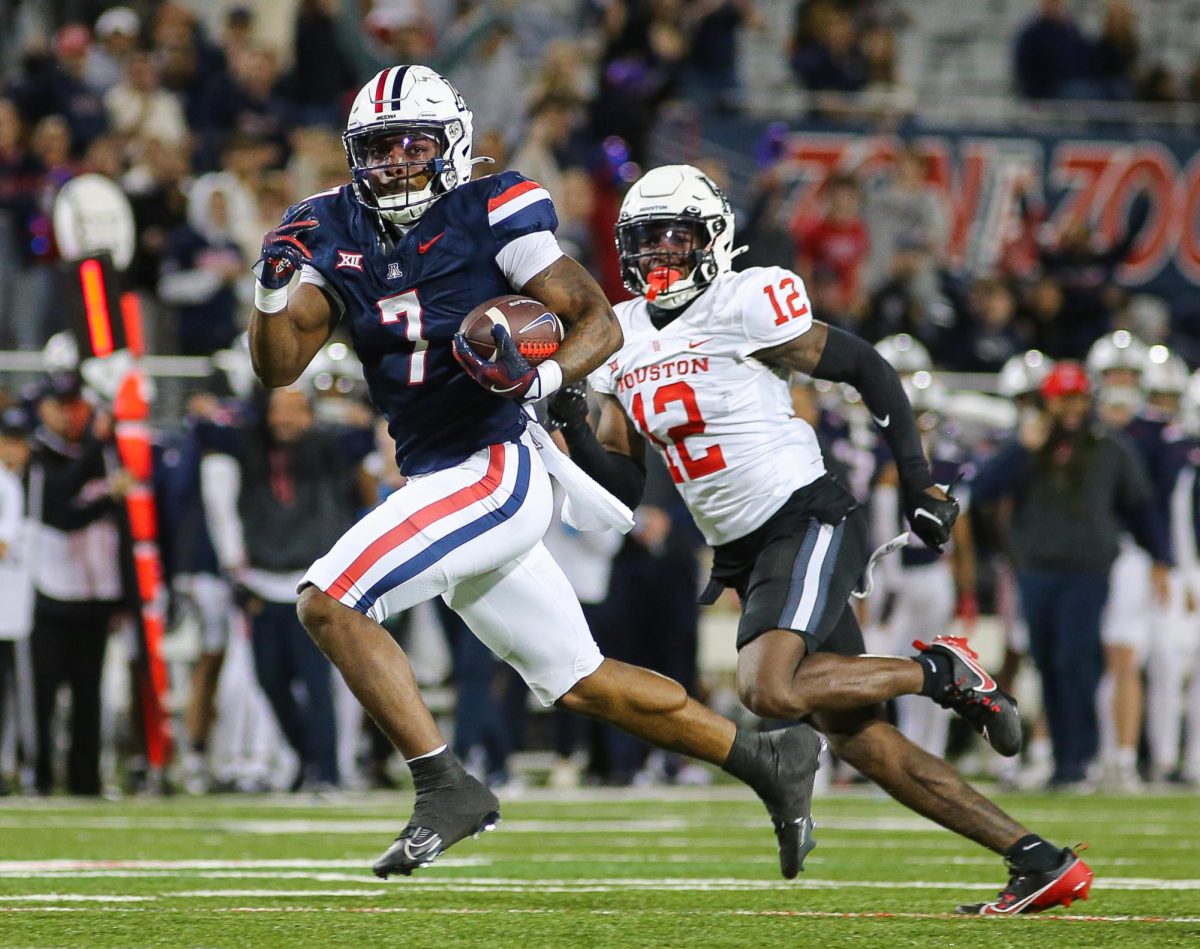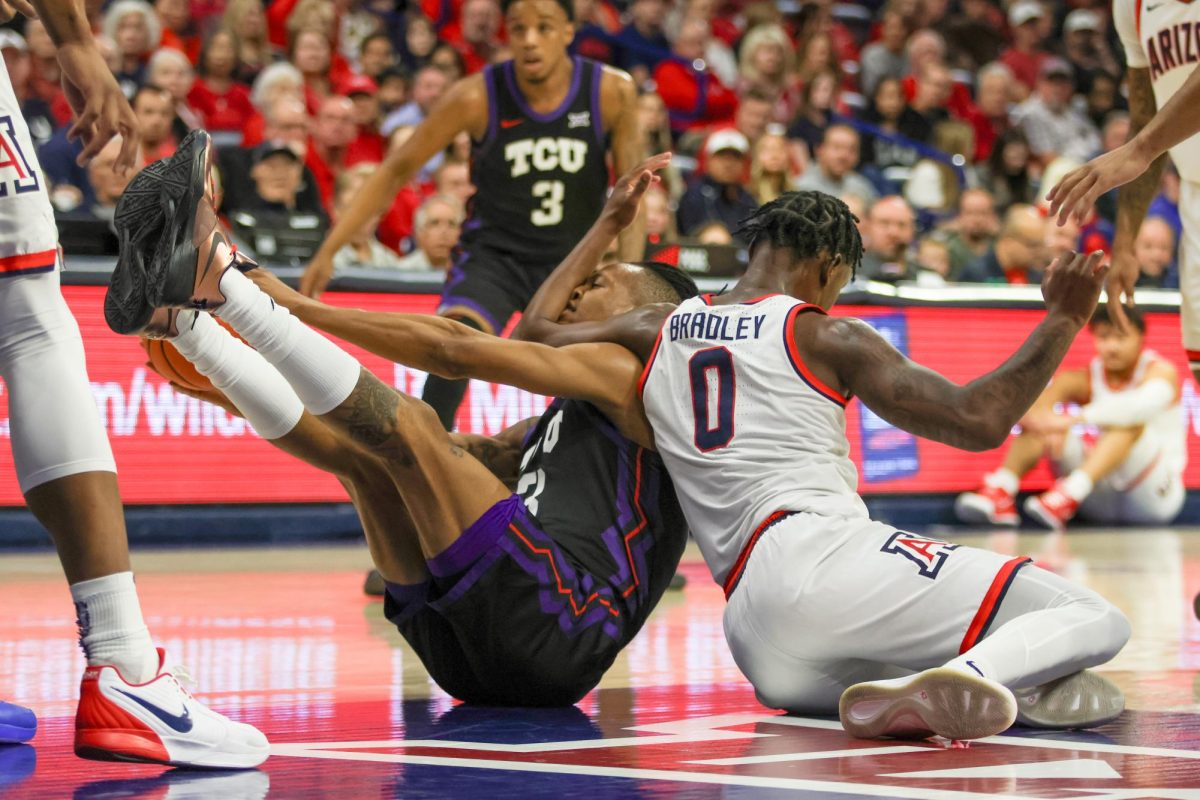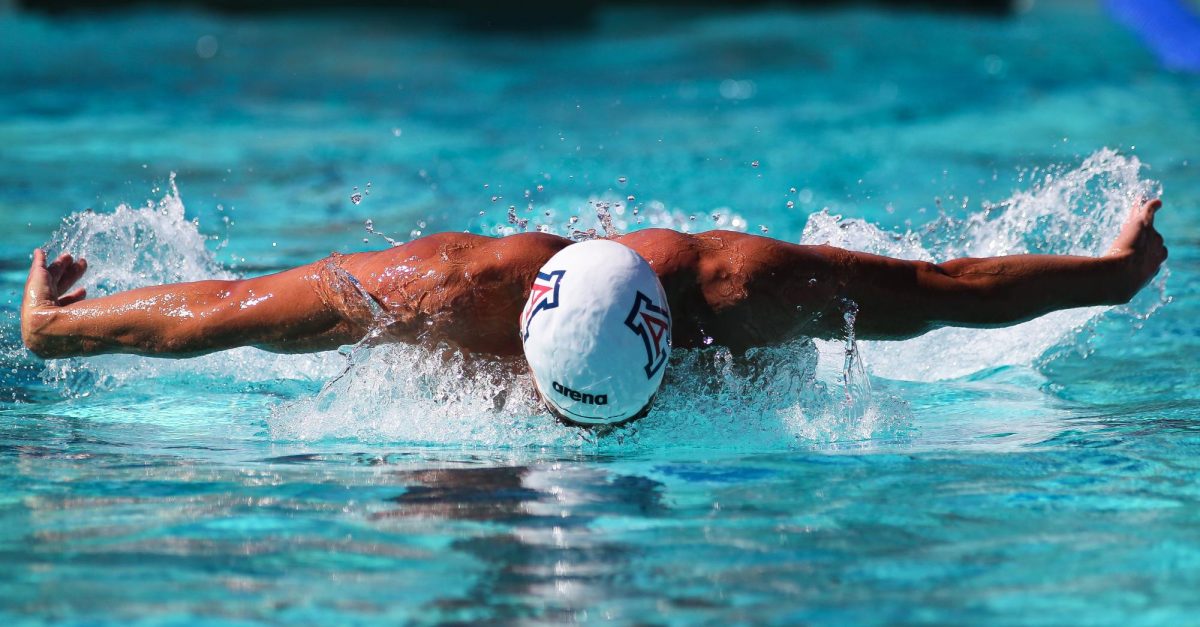They are some of the most noticeable students on campus.
Ceiling fans are potential guillotines and classroom desks are their worst enemies.
Offensive lineman Fabbians Ebbele, who will be a redshirt senior this fall, is listed at 6-foot-8, 311 pounds.
“When I walk into a room if I’m not paying attention I might bump my head,” Ebbele said. “Once I got in a Fiat with two doors. … My head was through the sun roof.”
Ebbele is one of the biggest players on Arizona football’s roster, and he said every day presents new challenges due to his height.
“I’ll be messing around and forget to duck,” Ebbele said. “Jumping around or going through doors is a challenge.”
The Centers for Disease Control and Prevention said 5-foot-7, 195-pounds is the average height and weight for American males age 20 and over. But Ebbele and most NCAA football players are not your average Americans.
In fact, recently, USA Today came out with stats that showed exactly how heavy college football players are.
The study ranked the heaviest college football conferences, teams and players. The average weight of a Division I college football player in 2013 was 228.29 pounds.
The Pac-12 was the fourth-heaviest out of the BCS conferences. The average weight for a football player in the Pac-12 was 228.54 pounds. The conference is only 2.5 pounds, behind the SEC, which weighed in at the heaviest.
But as a team, Arizona was one of the five lightest in the country.
“I really don’t eat a lot,” Ebbele said. “I eat a lot of small portions.”
Ebbele said he gets most of his meals from Bear Down Kitchen in the Lowell-Stevens Football Facility, but he does cook for himself too. What he buys when he goes grocery shopping every Sunday may be a surprise.
Ebbele is a pescatarian and hasn’t bought meat from the grocery store in years.
“[The] first time I heard it from him I thought he was joking with me,” offensive lineman Mickey Baucus said. “I looked at him and was like, ‘What do you mean you don’t eat meat? You’re 315 pounds’.”
Following many Arizona football games, the team is treated with Chick-fil-A sandwiches. But to accommodate Ebbele there is always one Jimmy John’s pescatarian sandwich waiting for him.
“I don’t know how he does it,” Baucus said.
Baucus, whose brother Jack Baucus played football at Arizona from 2010 to 2012, said his favorite foods are pizza, steak and carne asada burritos. He said he eats roughly 5,000 to 6,000 calories a day. On off days, when he isn’t practicing football or in the weight room, he eats less.
Baucus also said he gets his money’s worth from the Bear Down Kitchen and spends no more than $200 a month on groceries.
“I love food as [much as] anyone else on this team,” Baucus said. “But what exactly goes in my body is important.”
That’s right where the Arizona coaching and training staff want their players to be.
“If we’re treating them as an elite athlete, then they need to live, eat, train and sleep like an elite athlete,” head football coach Rich Rodriguez said. “Sometimes I don’t think we’ve done that. I think we’re getting closer to that.”
Since coming to Arizona in 2012, Rodriguez has emphasized the importance of not only on-the-field matters, but also what his players are doing once they leave the field. He believes there is a strong correlation between how a player lives and their football success or struggles.
“Every year you learn more and more about the value of nutrition and sleep and all those things for the athletes, so it’s nothing new,” Rodriguez said. “Just getting our guys to be a year-round athlete is a little different for them, and they got to understand that. And I think they do.”
—Follow Luke Della @LukeDella



